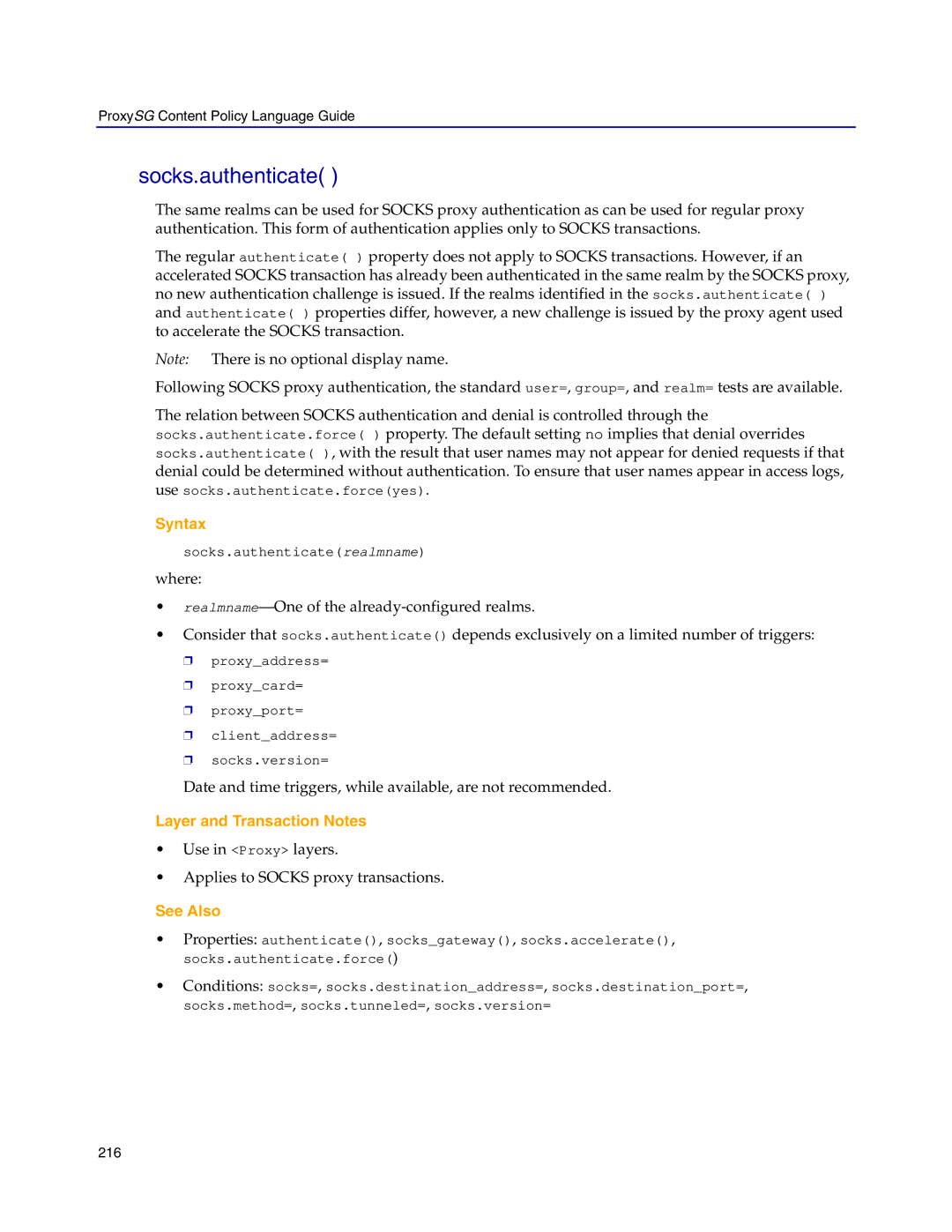ProxySG Content Policy Language Guide
socks.authenticate( )
The same realms can be used for SOCKS proxy authentication as can be used for regular proxy authentication. This form of authentication applies only to SOCKS transactions.
The regular authenticate( ) property does not apply to SOCKS transactions. However, if an accelerated SOCKS transaction has already been authenticated in the same realm by the SOCKS proxy, no new authentication challenge is issued. If the realms identified in the socks.authenticate( ) and authenticate( ) properties differ, however, a new challenge is issued by the proxy agent used to accelerate the SOCKS transaction.
Note: There is no optional display name.
Following SOCKS proxy authentication, the standard user=, group=, and realm= tests are available.
The relation between SOCKS authentication and denial is controlled through the socks.authenticate.force( ) property. The default setting no implies that denial overrides socks.authenticate( ), with the result that user names may not appear for denied requests if that denial could be determined without authentication. To ensure that user names appear in access logs,
use socks.authenticate.force(yes).
Syntax
socks.authenticate(realmname)
where:
•
•Consider that socks.authenticate() depends exclusively on a limited number of triggers:
❐proxy_address=
❐proxy_card=
❐proxy_port=
❐client_address=
❐socks.version=
Date and time triggers, while available, are not recommended.
Layer and Transaction Notes
•Use in <Proxy> layers.
•Applies to SOCKS proxy transactions.
See Also
•Properties: authenticate(), socks_gateway(), socks.accelerate(), socks.authenticate.force()
•Conditions: socks=, socks.destination_address=, socks.destination_port=, socks.method=, socks.tunneled=, socks.version=
216
